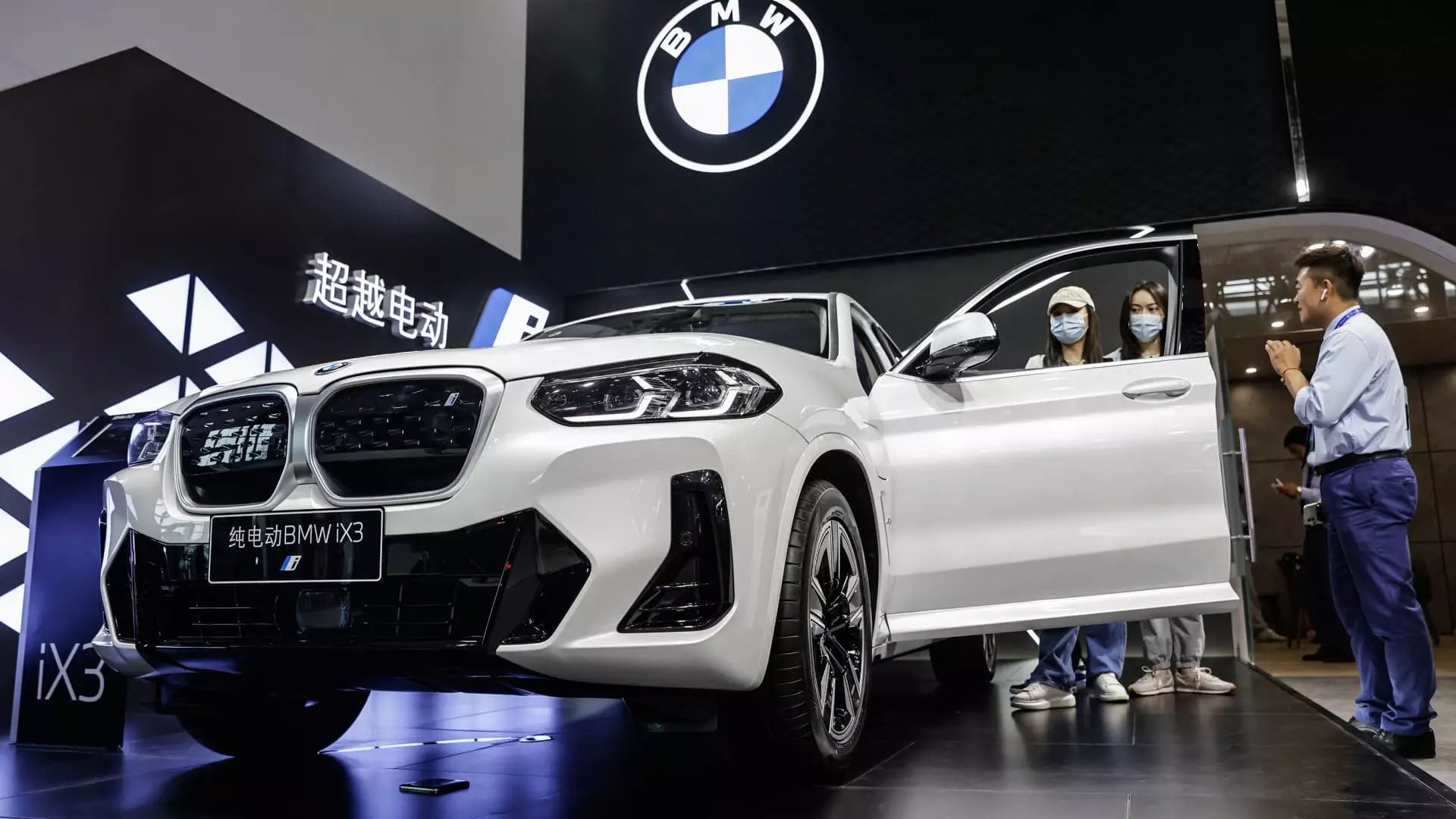In an alarming turn of events, BMW reported a staggering 36.9% drop in net profits for 2024, plummeting to 7.68 billion euros ($8.32 billion). This dismal figure isn’t merely an anomaly; it reflects deep-seated issues within the automotive giant, primarily driven by a persistent decline in demand within the crucial Chinese market. When a company of BMW’s caliber announces figures that align with bleak market forecasts, it is high time for stakeholders and consumers alike to reflect on what these numbers truly signify for the future of global automotive trade.
Tariffs: The Double-Edged Sword
The introduction of tariffs is proving to be a significant thorn in BMW’s side. The CFO’s revelation that these trade barriers could cost the company a full percentage point in earnings margins is a siren call for policymakers to reconsider these outdated economic strategies. Tariffs, once seen as tools for economic protectionism, now threaten to backfire spectacularly in an era where global supply chains are more interconnected than ever. As CEO Oliver Zipse astutely pointed out, the modern marketplace demands a different approach. It is essential for countries to engage in free trade, given that economic isolationism can lead to dire consequences not only for automakers like BMW but also for the broader economy.
The China Conundrum: Is Recovery Possible?
China has long been viewed as a goldmine for automakers, but recent trends cast a shadow over that narrative. BMW’s struggles in this critical market reflect broader economic troubles, ranging from slackening consumer interest to geopolitical tensions. The expected “ongoing challenging situation” in China raises the haunting question: Can BMW rebound from this downward spiral? The company delivered around 2.45 million units last year, down from 2.55 million in 2023—a painful reminder of how quickly fortunes can shift in the unpredictable arena of global trade.
A Reflection on the Future of Free Trade
Listening to Zipse criticize the current use of tariffs suggests a growing awareness of an essential truth: the era of isolationism is outdated. It’s about time that the world embraces a more liberal trading philosophy, one that considers interdependence over self-imposed barriers. The implications of misguided tariff policies stretch far beyond the confines of the balance sheet; they can ripple through economies, resulting in job losses and stunted innovation.
Verifiable data indicate that interconnected markets foster competition, inspire innovation, and ultimately improve consumer choice. Tariffs may have provided temporary relief in isolated circumstances, but today, they act as an albatross around the neck of companies like BMW, stifling potential rather than enhancing it.
As BMW navigates through these turbulent waters, it must prioritize strategic partnerships, and modernize its approach to global markets by advocating for a sustainable and collaborative economic environment. Only then can the organization hope to reclaim its status as a front-runner in the automotive industry. The stakes are high, and time is of the essence.

